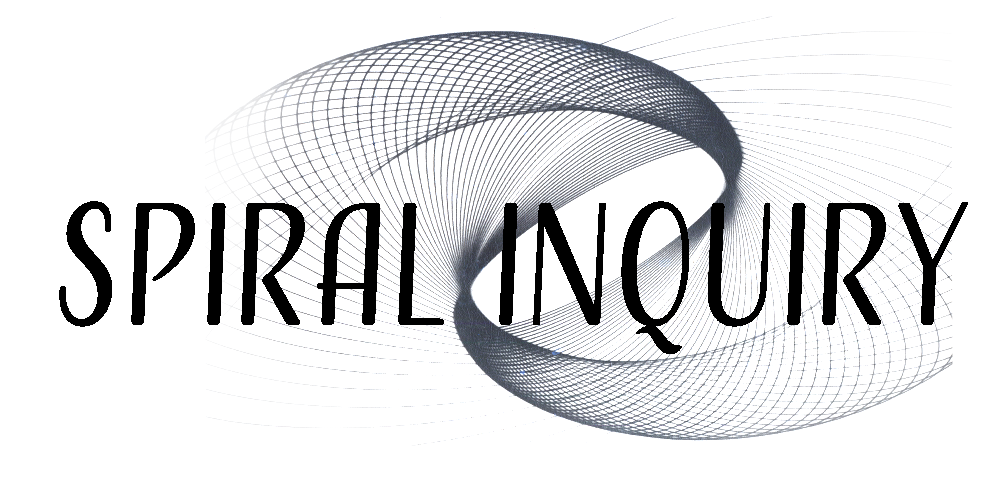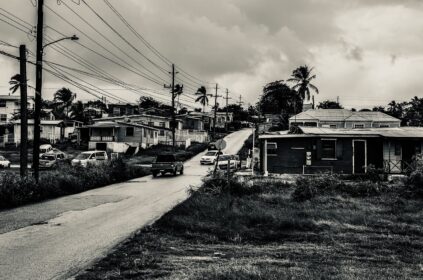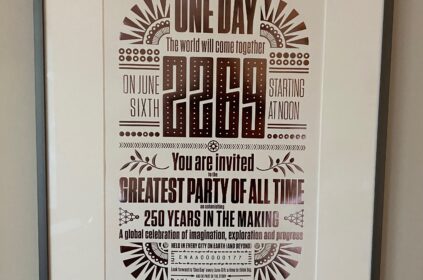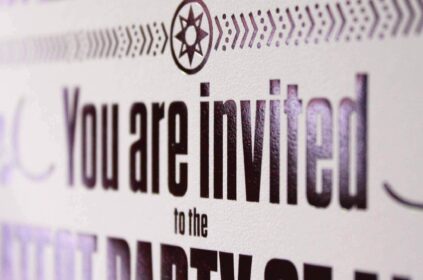My wife and I were hiking on a quiet mountain trail on the edge of wilderness in Colorado, and came through an old, beautiful aspen grove. One of the older trees had initials carved deeply into the bark. I wondered how long they had been there. My wife had a more visceral reaction: “How could anybody think it was OK to do that?” The remainder of our hike involved some deep thinking about the way ethics and consequences can reach across time and space.
Initial Thoughts
You can imagine a young couple, in an earlier time, walking through that Aspen grove. Married, perhaps, or in love. The young man feels the urge to make a timeless memorial to his feelings of the moment. So – why not mark their initials into the bark of a tree, to let the world know, forever, or almost forever, of their commitment to each other? An action fully planted in the NOW of that moment — and oblivious to possible consequences in the FUTURE. Those consequences include damage to the tree, but also the assault those initials constitute on future hikers enjoying an otherwise pristine landscape. Yet we can’t imagine how the young man could be held accountable for those far FUTURE consequences resulting from the actions taken in his long past NOW.
The question of accountability is further complicated by the fact that the prevailing culture in the NOW when the carving was made could have been quite different from the culture in our FUTURE. The carving might well have predated the environmental conservation movement of the late 20th century. Travel back a century and we would find the hills and streambeds in this area being scoured by prospectors. Marking trees would hardly have been a concern to those seeking their fortunes by mining the landscape, or by settling in farms and homesteads. The streams and forests were raw materials for bettering one’s future. The idea that an unmarked tree in a pristine wilderness would have some intrinsic value would have been incomprehensible. So how should those in the FUTURE judge actions taken in a distant NOW, in light of the very different cultural context of the past?
We often hear concerns about the slippery slope of moral or cultural relativism. It has been said that in a culture where “anything goes”, the risk is that “everything does”[1]. But the example here demonstrates a different kind of risk – the risk of moral or cultural myopia: Judging everything that occurred in the past on the basis of our current moral and cultural framework. When history loses its cultural contextuality and contingency, we may no longer be able to see the lessons that needed to be learned. If all the monuments of the confederacy are destroyed, how will we remember the monstrous ethical reality those monuments accompanied? If we cut off the voices of the past and present that do not align with our ethics, might we lose the humility essential to recognizing our own biases and mistakes?
Changing Times
Juan Enriquez takes a look at this question in his book, Right / Wrong – How Technology Transforms Ethics.(MIT Press 2020) He points to the evolutionary feature of human moral codes and ethical sensibilities and expresses his belief that humanity has been getting better. But he offers a caution about judging the past:
“Ethics will continue to evolve. And as they change, we might get blindsided by how the next generations judge our actions. It pays to be humble about the past, as we too will be judged in the future.” p.209
This does not mean that we should “let anything go.” The point is that absolute moral certainty in ethical judgements is not helpful, and is often, in hindsight, wrong. Our certainty may be driven by our own biases, by the context of our own times or by the norms adopted by our own tribe. What he does recommend is:
“to bring front and center several core principles: modesty, generosity, empathy, civility, humility, compassion, decency, truthfulness… That is what underlies what we eventually discover to be ethical, to be a little more RIGHT. Those are the values essential to our humanity, to maintaining a civil society.” P.221
I still wish that the couple walking through the aspen grove so many years ago had made a different choice. Perhaps the young man could have “pruned” the tree and given a small token to his true love, instead of marring the bark. Nevertheless, the act was done, and while it momentarily interrupted our enjoyment of the wilderness, it also provided the opportunity to think about the way actions and consequences reach across time. This kind of time travel helps us understand that our own choices reach deeply into the future, for better or for worse.
The Road Ahead
So then, what bearing do these thoughts have on some of the larger questions of our time? How will our actions and choices today be viewed by future generations? Let’s consider the example of gun control. This is a controversial topic, with some claiming that the US Constitution provides an inalienable right for citizens to carry arms. Others counter-claim that the free flow of arms in our society is a public health crisis that threatens our life and liberty, which the Constitution is supposed to protect. How will this issue be judged by future society?
There were 39,740 deaths from firearms in the U.S. in 2018. About one percent were classified as “legal interventions”. Sixty-one percent were suicides. Murders were 35%, with accidents and “undetermined” at 1% each. (UIC Davis Health Facts: https://health.ucdavis.edu/what-you-can-do/facts.html ) The total deaths from guns slightly exceeded total traffic deaths in 2018 (according to the US DOT) of 36,835. How do we assess these consequences?
In the case of traffic deaths, we insist on strict licensing, registration and insurance. New drivers are required to take a proficiency test before getting a license, and we extend extraordinary efforts on research and regulation related to safety. The benefits of these efforts have been very positive – cars today are, on the whole, much safer than they were in the past — although we also drive more and faster. What do we gain from all this driving? Transportation delivers immense economic benefits from the transportation of goods and services, and the mobility it affords in our lives is an important and valuable public benefit. Clearly these benefits contribute significantly to life, liberty and the pursuit of happiness for all of us. Traffic deaths are an unfortunate consequence of our choice to enable and support personal mobility and economic activity.
In the case of deaths from guns, we have made only minimal efforts towards licensing, registration, training, research and regulation. Furthermore, as the statistics point out, only a tiny fraction of gun deaths are deemed legal or accidental. The vast majority serve the illegal and socially destructive purposes of murder and suicide. This is a human and societal tragedy of immense proportions. So — does the claimed benefit of allowing nearly unfettered access to guns because of one sentence in the Constitution justify the human toll of death by suicide and murder?
How will future generations judge the choices we have been making? If we bring the guiding values of “modesty, generosity, empathy, civility, humility, compassion, decency, truthfulness” to the conversation, would our choices be the same?
The Ethics of Punishment
Another controversial question where we do not seem to have a consensus, is whether bad behaviors, that we define as illegal, should be answered with retribution or rehabilitation? What is the right level of justice, for society and for victims, to impose on criminals? Clearly, many cultures historically took a harsh view of those violating societal norms or government decrees. Death was often the punishment of choice. But more progressive views of criminal justice have tended to favor concepts of reform and rehabilitation. Giving a criminal a chance to express remorse, to be held accountable and to “pay their debts” and to become productive citizens again, have become more accepted.
For example, the use of the death penalty has declined significantly. According to the Death Penalty Information Center, “more than 70% of the world’s countries have now abolished capital punishment in law or practice.” The USA is not among them.
Imprisonment is also a common response to criminal behaviors. There are a few countries that take ideas of rehabilitation seriously. Norway is recognized as the world leader in this regard, and they correspondingly have one of the lowest incarceration and recidivism rates in the world. But other countries are also trying out rehabilitative options, including prison programs in what we might consider unlikely places: Ethiopia, Uruguay, Poland, Slovenia, India, Belgium and Italy.
The USA is not among them, either. According to the National Bureau of Economic Research, the US has, by far, the highest incarceration rate in the world, in spite of being one of the wealthiest countries in the world. These are rather astonishing statistics.
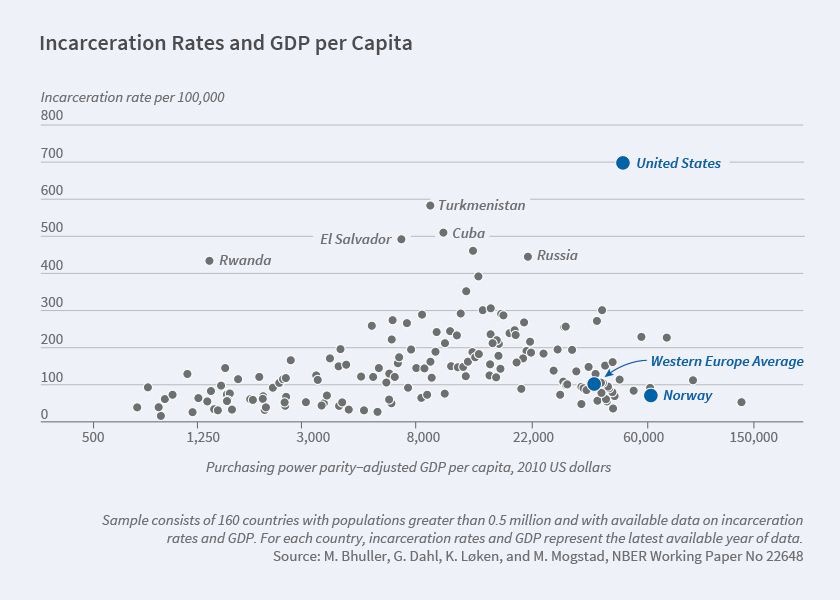
We need to ask ourselves a few questions. Is the USA really such a violent, criminalized society that we have so many prisoners? Or is our criminal justice system somehow out of line with global standards? How will future generations judge the choices we have been making? If we bring the guiding values of “modesty, generosity, empathy, civility, humility, compassion, decency, truthfulness” to the conversation, would our choices be the same?
Conclusion
It seems clear that the history that we, in the USA, are creating NOW, is likely to be judged harshly in the FUTURE. This is not a question of carving initials on a tree trunk. These are questions of how our society is treating other human beings. We are an outlier among our peers in the civilized world of the 21st century. We are enabling murder and suicide at an alarming rate by refusing to give the same careful consideration to gun safety as we give to traffic safety. In terms of criminal justice, yes, many of those put to death or imprisoned have made seriously bad choices or acted with selfishness or in anger. But examples around the world show that many criminals could be rehabilitated. Many are also mentally ill, economically disadvantaged, speak a different language or have a different colored skin. How do we justify the fact that our treatment of them seems to be so much more severe, and more retributive, than the rest of the world?
Let’s take a hard look at our choices. Let’s bring the guiding values of “modesty, generosity, empathy, civility, humility, compassion, decency, truthfulness,” to this self-examination. If we truly desire to be part of a better, freer, more successful and more peaceful nation and world, then we will want to make different choices. Our children’s children’s FUTURE depends on it.
[1] To paraphrase an oft-repeated trope sometimes attributed to Walter Darby Bannard.
